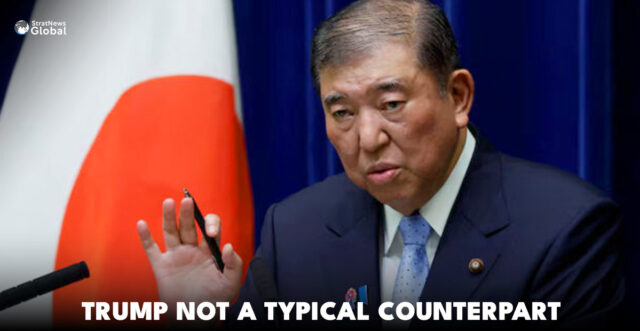Japanese Prime Minister Shigeru Ishiba said on Monday that he would not hesitate to hold talks with US President Donald Trump to ensure the agreed reduction in US automobile tariffs is implemented at the earliest.
In a parliament session on Monday, Ishiba drew criticism from some opposition lawmakers for not having signed an official document with the US in clinching a trade deal last month.
‘Not A Typical Counterpart’
“Creating a document could have delayed the timing of tariff cuts. That was our biggest fear,” Ishiba said, defending Japan’s decision to agree on a deal without creating an official document with the US.
“He is not a typical counterpart and could overturn rules,” Ishiba said on Trump’s negotiating style.
Ishiba said he had “absolutely no hesitation” to hold talks with Trump to have Washington execute the tariff cut soon, though he declined to comment on when such talks could take place.
“Both countries will begin executing what was agreed upon, which is harder than agreeing on a deal,” Ishiba said, signaling his intention to stay on as premier to see through the process.
Under Pressure
Ishiba is under pressure from within his ruling Liberal Democratic Party to step down as prime minister to take responsibility for the party’s huge defeat in last month’s upper-house election.
Japan’s trade deal struck with Trump last month lowers US tariffs on imports of goods including automobiles, easing the pain for the export-reliant economy.
But there is no clarity on when US tariffs for automobiles and auto parts will be cut to 15% from the current 25%, clouding the outlook for Japan’s fragile recovery.
In the same parliament session, Japan’s top trade negotiator, Ryosei Akazawa, said it was hard to say how soon the US could actually implement automobile tariffs, though he added it took “more than a month” in the case of Britain.
(With inputs from Reuters)





